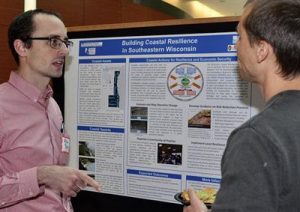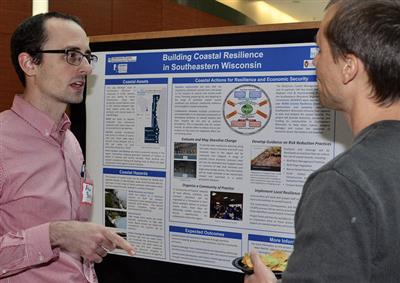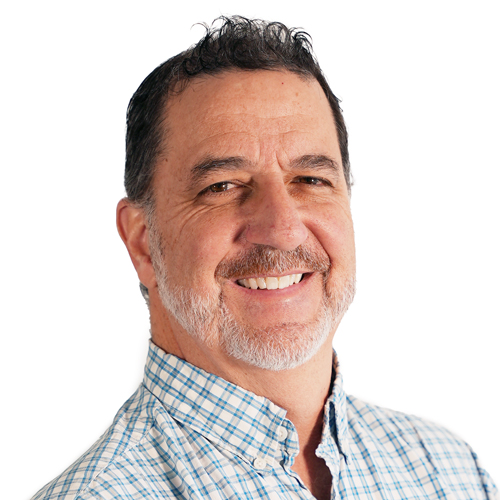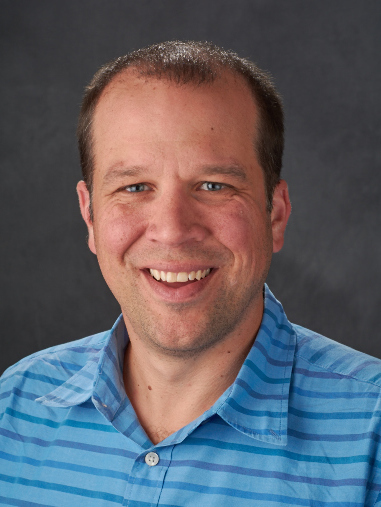
Credit: John Karl/WRI
Nov. 6, 2017
By Moira Harrington
Typically, when you combine paper and water all you get is a sodden mess. A recent poster session on an array of water research and outreach projects at UW-Madison, however, was anything but typical and it certainly wasn’t messy.
The gathering on Oct. 24 at the Discovery Building instead resulted in a frisson of excitement as nearly 200 people came together to learn about one of nature’s four basic elements and the explorations into it from many quarters of campus. The event featured 34 posters that served to connect researchers and students with one another to highlight commonalities of science, fostering—at the very least—awareness of projects. It also could lead to future collaborations as the event identified knowledge gaps, offering possible avenues of other explorations down the road.
“It was a great event! I really enjoyed connecting and reconnecting with water colleagues,” said Adam Bechle, a post-doc with the Wisconsin Coastal Management Program.
The event organizer said, “It was gratifying, and exciting, to see such enthusiasm for water-focused discovery. We witnessed a variety of vibrant conversations between students, researchers and professionals across a broad range of expertise.” Jack Cotrone is the coordinator of an Office of the Vice Chancellor for Research and Graduate initiative known as Water@UW-Madison.
This had been Water@UW-Madison’s second annual poster session. The effort’s mission is one of facilitation of cross-disciplinary communication and collaboration amongst the university’s water community. The event featured the work of 16 campus departments, research centers and outside organizations.
There was also a real-time and interactive activity—populating a story map, https://arcg.is/0eT05f. It will be an evolving visual representation of where across this water-rich state projects will be undertaken, have been completed or are in progress.
“We invited poster session attendees to contribute to the map as part of the event. On the fly, the displayed map then updated, presenting the scope and diversity of the science,” said Cotrone who prior to the poster session had never used story mapping software but gave himself a crash course so as to be able to use the tool effectively in this public setting.
More about Water@UW-Madison can be found at water.wisc.edu, and for ongoing updates, there is a weekly enewsletter. Get on the list by sending a note to join-water@lists.wisc.edu.




